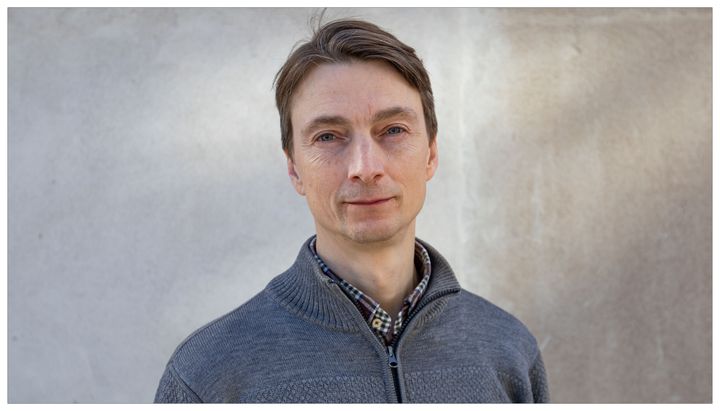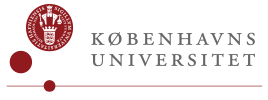Familiar figure new head of Niels Bohr Institute
1.12.2023 11:26:58 CET | Københavns Universitet | Press release
Professor Joachim Mathiesen will take up his position as the new head of the Niels Bohr Institute from 1 December 2023. He will be responsible for leading an institute in rapid national and international development.

Joachim Mathiesen is no stranger to the head of department role. As the department's deputy head of research since 2019, he has worked closely with his predecessor, and he has furthermore been acting head of department since 1 September.
As the new head, Joachim Mathiesen will take over the management of a high-profile institution known worldwide for its research and education. The aim is to uphold this reputation, leading to a few specific focus areas.
“It is important to the Niels Bohr Institute that we continue to attract talented researchers from both Denmark and abroad. If we are to succeed, we must offer an attractive research and work environment. We need to have an open-minded approach, be inclusive and ensure diversity among our staff. At the same time, we need to do a better job of ensuring career development for our junior researchers. Not everyone will continue working with us after their PhD or postdoc positions, so we need to be good at discussing other career opportunities with them,” says Joachim Mathiesen, who also intends to focus on the study environment and the specialised master’s programmes at the Niels Bohr Institute.
“We have special degree programmes in quantum informatics, nanoscience and climate. Programmes that we collaborate on with others. We need to continue developing them for the benefit of society.”
Experience as both researcher and manager
Joachim Mathiesen, 47, holds a master’s degree and a PhD from the Niels Bohr Institute. Following his doctorate defence in 2004, he pursued a research career abroad, first in Israel at the Weizmann Institute of Science, then in Norway, where he started as a postdoc at the Norwegian University of Science and Technology, later becoming an assistant professor and eventually a professor of physics at the University of Oslo.
In 2009, he returned to the Niels Bohr Institute as an associate professor in complex systems modelling, where, among other projects, he investigates how fluid flows behave in porous structures when multiple phases are present at the same time. This involves, for example, studying how nutrients spread in the upper soil layer where both air and water are present.
Since 2019, Joachim Mathiesen has held the position of deputy head of research, and he therefore already knows the Niels Bohr Institute very well from the inside. The acting dean at Faculty of Science, Grete Bertelsen, sees this as an advantage.
“The Niels Bohr Institute has a broad spectrum of research and enjoys considerable recognition both nationally and internationally. Also, there’s a high demand from both national and international students for our physics programmes, which educate sought-after candidates for both public and private companies. So there’s plenty to get on with, and I’m convinced that Joachim’s insights will benefit both the department and the overall leadership of the faculty,” says Grete Bertelsen.
Joachim Mathiesen will take over the role of head from Jan Thomsen, who is currently a professor at the department and the COO of the department’s new quantum centre, the Novo Nordisk Foundation Quantum Computing Programme.
Contacts
Joachim MathiesenHead of DepartmentNiels Bohr Institute, University of Copenhagen
Tel:(+45) 3532 5214head_of_institute@nbi.ku.dkBirgitte LyhneHead of CommunicationsFaculty of Science, University of Copenhagen
Tel:(+45) 9356 5864Links
ABOUT THE FACULTY OF SCIENCE
The Faculty of Science at the University of Copenhagen – or SCIENCE – is Denmark's largest science research and education institution.
The Faculty's most important task is to contribute to solving the major challenges facing the rapidly changing world with increased pressure on, among other things, natural resources and significant climate change, both nationally and globally.
Subscribe to releases from Københavns Universitet
Subscribe to all the latest releases from Københavns Universitet by registering your e-mail address below. You can unsubscribe at any time.
Latest releases from Københavns Universitet
Heste fløjter og synger, når de vrinsker23.2.2026 05:00:00 CET | Pressemeddelelse
Ny forskning fra Københavns Universitet viser, at et hestevrinsk er mere komplekst end som så. Opdagelsen bryder med tidligere antagelser om det store pattedyr og kaster nyt lys over, hvordan heste kommunikerer. Et forskningsområde, der trods 4.000 års domesticering stadig er fyldt med ubesvarede spørgsmål.
Ny viden om Nordeuropas radiator: Vulkanudbrud i fortiden kan have skubbet havstrøm mod kollaps17.2.2026 10:59:19 CET | Pressemeddelelse
Ny forskning fra Københavns Universitet peger på, at vulkanudbrud under istiden kan have udløst pludselige klimaskift ved at forstyrre den Atlantiske havcirkulation (AMOC) og at temperaturen herefter kunne svinge mellem varme og kulde i tusindvis af år. Studiet bidrager med nye brikker til forståelsen af, hvad der kan få Nordeuropas radiator til at gå ned.
Hvor fandt stenalderens første bønder egentlig deres planter? Nyt studie giver svar13.2.2026 10:05:51 CET | Pressemeddelelse
Ved hjælp af avancerede maskinlærings- og klimamodeller har forskere vist, at forfædrene til afgrøder som hvede, byg og rug sandsynligvis var langt mindre udbredte i Mellemøsten for 12.000 år siden, end man hidtil har troet. Det kan betyde, at kultiveringen af de første planter og dermed landbruget opstod andre steder end hidtil antaget.
Når krisen kradser, står Danmarks frivillige klar11.2.2026 13:25:56 CET | Pressemeddelelse
En del af befolkningen står parat til at træde til, når der er krise og andre har brug for hjælp. Disse mennesker udgør en slags civilt beredskab af frivillige, mener KU-forskere fra Sociologisk Institut. Men det er ikke nødvendigvis de samme frivillige, du kender fra foreningslivet.
Graviditet ændrer kvinders reaktioner på spædbørn9.2.2026 14:28:56 CET | Pressemeddelelse
Gravide kvinder reagerer mere positivt end ikke-gravide, når de præsenteres for lydoptagelser, videoer og billeder med spædbørn. Det tyder på, at en graviditet forbereder kvinder mentalt på at håndtere signaler fra spædbørn, viser et nyt studie fra Københavns Universitet og Psykiatrisk Center København.
In our pressroom you can read all our latest releases, find our press contacts, images, documents and other relevant information about us.
Visit our pressroom